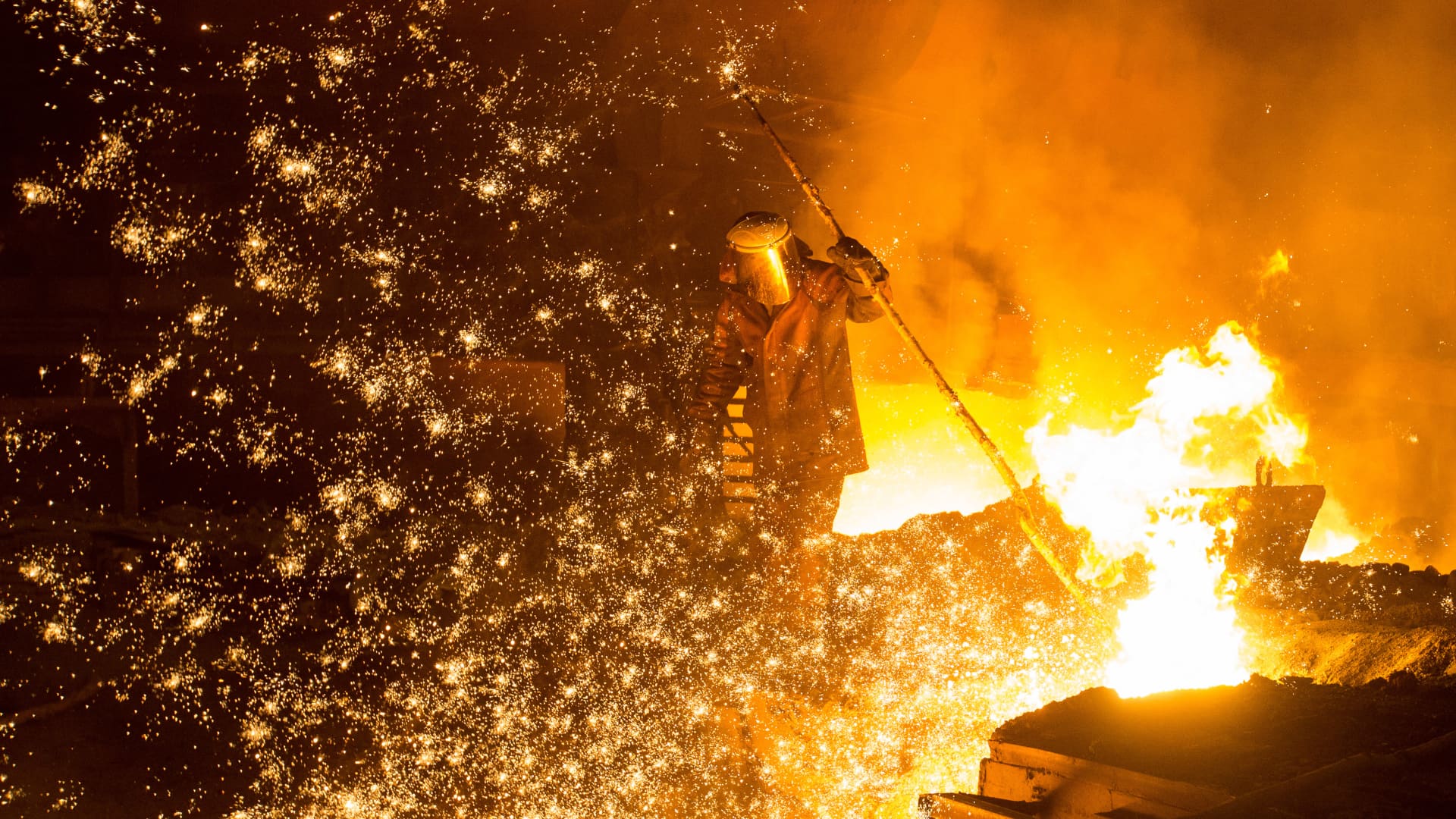Hot liquid metal flows from a blast furnace during the smelting process at the Evraz Consolidated West-Siberian Metallurgical Plant in Novokuznetsk, Russia, on July 22, 2020.
Bloomberg | Bloomberg | Getty Images
Russia’s economy is expected to grow faster than all advanced economies this year, according to the International Monetary Fund.
Russia is expected to grow 3.2% in 2024, the IMF said in its latest World Economic Outlook published Tuesday, exceeding the forecast growth rates for the U.S. (2.7%), the U.K. (0.5%), Germany (0.2%) and France (0.7%).
The prediction will be galling for Western nations which have sought to economically isolate and punish Russia for its 2022 invasion of Ukraine.
Russia says Western sanctions on its critical industries have made it more self-sufficient and that private consumption and domestic investment remain resilient. Meanwhile, continuing oil and commodity exports to the likes of India and China, as well as alleged sanctions evasion and high oil prices, have allowed it to maintain robust oil export revenues.
In this pool photograph distributed by Russian state agency Sputnik, Russia’s President Vladimir Putin visits Uralvagonzavod, the country’s main tank factory in the Urals, in Nizhny Tagil, on Feb. 15, 2024.
Ramil Sitdikov | Afp | Getty Images
Russia’s military-industrial complex has also expanded significantly during the war as defense spending and production have rocketed. In short, Russia has adapted to a “new normal” as its economy has been put on a war footing.
The IMF predicted that Russia’s economic growth would moderate in 2025, however, declining to 1.8% “as the effects of high investment and robust private consumption, supported by wage growth in a tight labor market, fade.”
The Washington-based IMF includes the U.S., U.K., the euro area’s largest economies, Canada and Japan as advanced economies. Russia, China and India remain in its “emerging and developing” Europe and Asia categories, respectively.
Russian President Vladimir Putin observes a Tupolev TU-160 strategic jet bomber while visiting an aviation plant on Feb. 21, 2024, in Kazan, Russia.
Contributor | Getty Images News | Getty Images
The head of the IMF told CNBC in February that the Russian economy was still facing significant headwinds despite the Fund’s rosy forecasts for the country of roughly 145 million people.
“What it [the growth data] tells us is that this is a war economy in which the state — which let’s remember, had a very sizeable buffer, built over many years of fiscal discipline — is investing in this war economy,” IMF Managing Director Kristalina Georgieva told CNBC’s Dan Murphy at the World Governments Summit in Dubai in February.
“If you look at Russia, today, production goes up, [for the] military, [and] consumption goes down. And that is pretty much what the Soviet Union used to look like. High level of production, low level of consumption.”
Georgieva said she believed the Russian economy also faced challenges related to an exodus of skilled workers and “because of the reduced access to technology that comes with … sanctions.”
Bank of Russia Governor Elvira Nabiullina told lawmakers in Russia’s State Duma on April 8 that production in the country is being constrained by worker shortages, according to Reuters, although she noted that Russia’s economy was continuing to grow at an impressive rate.
Andrey Rudakov | Bloomberg | Getty Images
Last week, Nabiullina also sounded a note of optimism over Russia’s inflation rate (at 7.7% in March), saying she believed the peak had passed, although it was too early to start cutting rates.
Russia’s central bank is expected to hold its key rate at 16% at its next rate-setting meeting on April 26, a Reuters poll showed last month. Analysts polled by Reuters expect rates to stand at 12.5% by the end of 2024, Reuters reported last week, far above the central bank’s inflation target of 4%.
Having begun his fifth term in office, Russian President Vladimir Putin has vowed to raise living standards in Russia, with increased spending on education, health care and public infrastructure. He also signaled that taxes on larger companies and wealthier individuals will rise.
— CNBC’s Natasha Turak contributed to this report.







